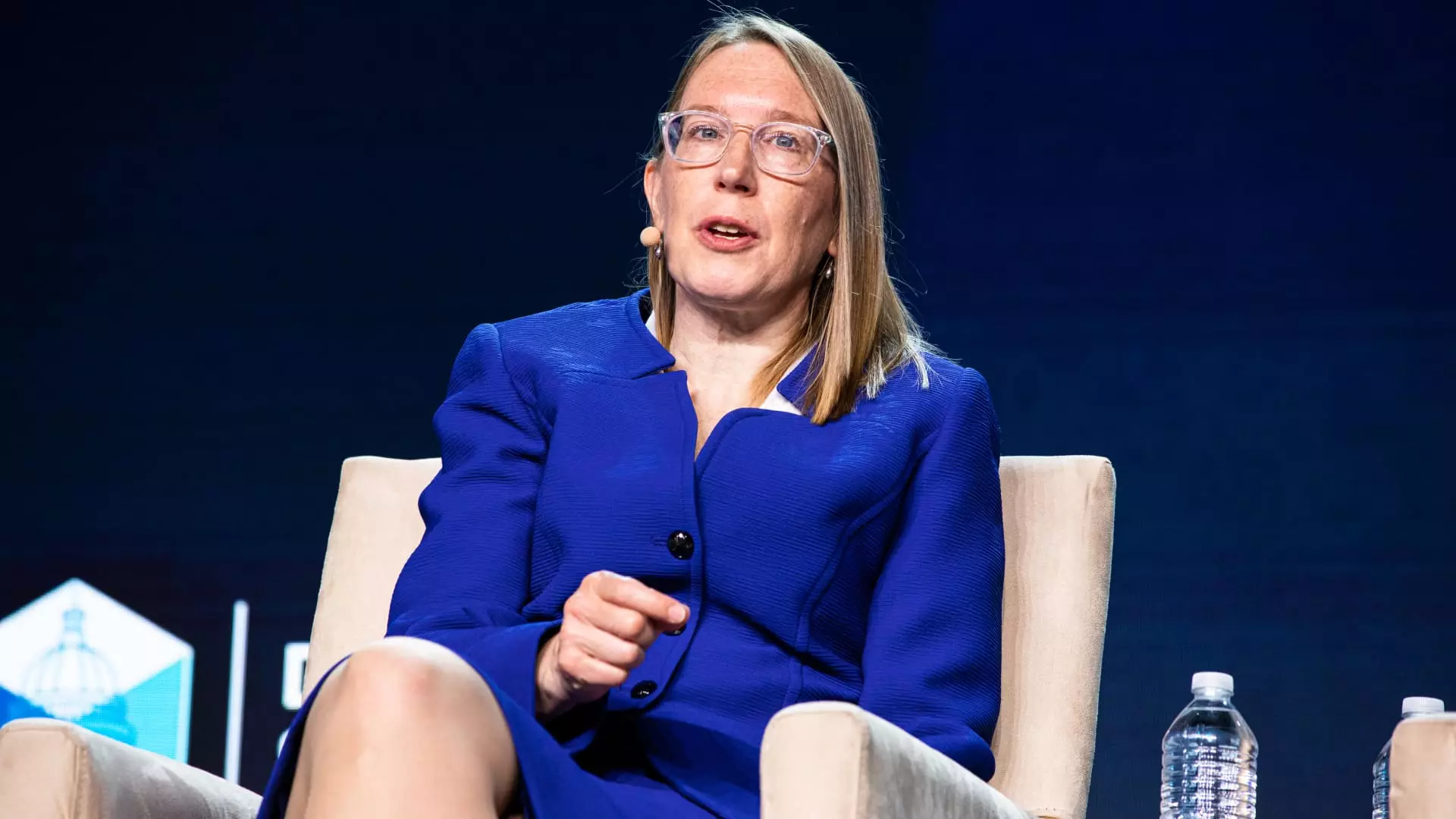The cryptocurrency realm is witnessing an evolutionary moment, especially with the U.S. Securities and Exchange Commission (SEC) stepping back from regulating meme coins. According to Hester Peirce, a notable SEC commissioner, the agency’s recent decision indicates it doesn’t classify the majority of these tokens as securities under federal law. This creates a more permissive environment for investors, notably in the wake of President Donald Trump’s own foray into the meme coin market with the $TRUMP token, which saw a meteoric rise before plummeting. With such volatility, potential investors are left to navigate this landscape with little guidance or protection.
The resemblance to the burgeoning NFT frenzy of 2021 is clear. NFTs, like meme coins, demonstrated substantial value fluctuations primarily driven by market sentiment rather than intrinsic worth. Investors gravitate toward these assets, not for their utility, but for the thrill of speculative trading, hoping to ride waves of hype as they emerge. The SEC’s failure to communicate its non-involvement transparently is inadvertently encouraging a gamble akin to betting on a roulette wheel, urging investors to tread carefully.
The Trump Effect: Coin or Currency?
At the crux of this crypto discussion is the rise of the $TRUMP token, a venture that has drawn both attention and skepticism. With 80% of its supply controlled by the Trump Organization and its affiliates, the narrative around this token goes beyond mere trading; it is tied directly to political aspirations and personal fortunes. Following its launch, the $TRUMP token ballooned to a staggering $15 billion market cap, fueled largely by strategically placed social media messages from Trump himself. In a mere blink, however, it lost most of its value, illuminating the ephemeral nature of meme coins.
This dynamic raises poignant questions about accountability and the nature of value in the crypto domain. Unlike traditional monetary systems backed by tangible assets, meme coins thrive on market speculation and social media clout. As such, the $TRUMP token exemplifies a troubling reality: investments that could be seen as mere entertainment can also morph into significant financial risks, particularly for those who fail to grasp the volatile undercurrents of such speculations.
The Security Debate: Interests and Implications
Investors observing this evolving landscape are faced with critical decisions as allegations of conflicts of interest swirl around Trump’s expanding crypto empire. Democratic lawmakers, including Senator Richard Blumenthal, express deep concerns that the Trump family’s crypto holdings could potentially serve as conduits for foreign entanglements—blurring the lines between political power and financial gain. This intersection of finance and politics necessitates urgent scrutiny, as it can shape regulatory responses and further complicate investors’ decisions.
Indeed, this growing discontent signals a potential shift in how cryptocurrencies may be regulated in the future. As the SEC re-evaluates its entire approach, the question looms: who will ensure transparent and fair trading practices in an unregulated market, especially as key players adapt to exploit this newfound leniency? Those with substantial financial clout will surely seek ways to capitalize on these ambiguous conditions, while the average investor may remain in a precarious position, lacking the expertise or resources to navigate these treacherous waters effectively.
Political Influence and Market Manipulation
The broader implications of this scenario unravel further as major players from the crypto world, such as Binance’s founder Changpeng Zhao, gain renewed influence following the dismissal of significant lawsuits by the SEC. The agency’s withdrawal from the legal battle, once characterized by stringent enforcement, raises questions about the integrity of the regulatory environment. When power players seek to align themselves with individuals in political roles, it beckons potential for market manipulation that can circumvent the very checks and balances intended to support ethical practices in finance.
Zhao’s connections to Trump-affiliated networks and attempts to secure a presidential pardon illuminate the complex mesh between political favor and market good fortune. Emerging reports of capital infusions from foreign interests pushing funds into Trump-aligned entities compound these anxieties, reinforcing suspicions of market practices rooted in backdoor dealings rather than transparent strategies.
The Way Forward: Investor Vigilance and Market Realities
Moving forward, investors must exercise amplified diligence as they engage with meme coins, stablecoins, and the broader crypto marketplace. The absence of regulatory clarity invites inherent risks, and a culture characterized by the unpredictability of investment outcomes amplifies this notion. As the SEC recalibrates its role and guidelines, one thing remains palpable: the landscape of cryptocurrency is not for the faint-hearted.
Future enthusiasts and seasoned investors alike are urged to recognize that the potential for quick gains can be hypnotic, but they should also acknowledge the very real risks they embody. The engagement with meme coins requires the understanding that while substantial excitement can accompany these assets, caution is paramount as we forge ahead into this brave new world of finance. The crypto landscape may be enchanting, but it ultimately hinges on an investor’s ability to deftly navigate its complexities.

